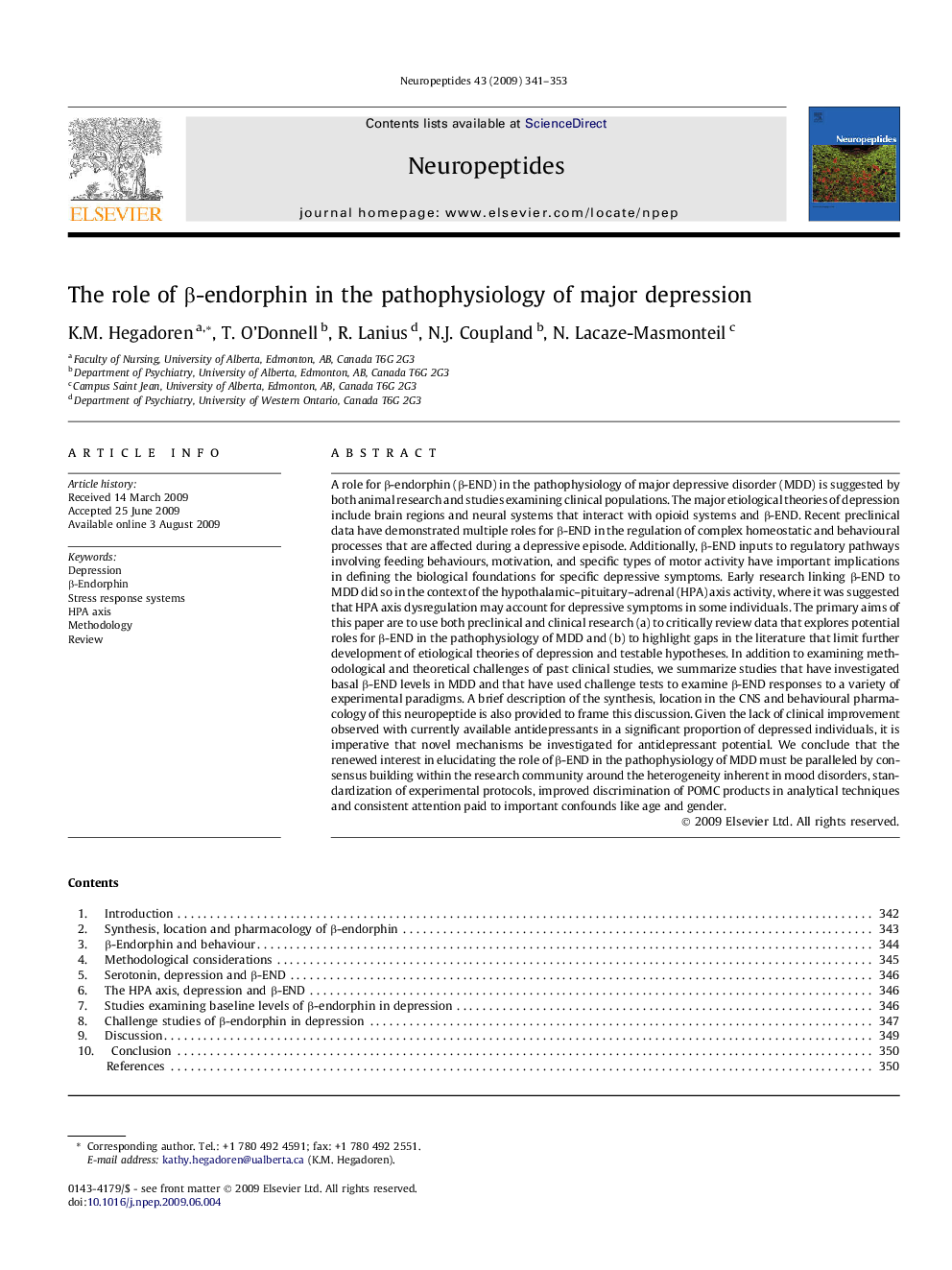| Article ID | Journal | Published Year | Pages | File Type |
|---|---|---|---|---|
| 2808566 | Neuropeptides | 2009 | 13 Pages |
A role for β-endorphin (β-END) in the pathophysiology of major depressive disorder (MDD) is suggested by both animal research and studies examining clinical populations. The major etiological theories of depression include brain regions and neural systems that interact with opioid systems and β-END. Recent preclinical data have demonstrated multiple roles for β-END in the regulation of complex homeostatic and behavioural processes that are affected during a depressive episode. Additionally, β-END inputs to regulatory pathways involving feeding behaviours, motivation, and specific types of motor activity have important implications in defining the biological foundations for specific depressive symptoms. Early research linking β-END to MDD did so in the context of the hypothalamic–pituitary–adrenal (HPA) axis activity, where it was suggested that HPA axis dysregulation may account for depressive symptoms in some individuals. The primary aims of this paper are to use both preclinical and clinical research (a) to critically review data that explores potential roles for β-END in the pathophysiology of MDD and (b) to highlight gaps in the literature that limit further development of etiological theories of depression and testable hypotheses. In addition to examining methodological and theoretical challenges of past clinical studies, we summarize studies that have investigated basal β-END levels in MDD and that have used challenge tests to examine β-END responses to a variety of experimental paradigms. A brief description of the synthesis, location in the CNS and behavioural pharmacology of this neuropeptide is also provided to frame this discussion. Given the lack of clinical improvement observed with currently available antidepressants in a significant proportion of depressed individuals, it is imperative that novel mechanisms be investigated for antidepressant potential. We conclude that the renewed interest in elucidating the role of β-END in the pathophysiology of MDD must be paralleled by consensus building within the research community around the heterogeneity inherent in mood disorders, standardization of experimental protocols, improved discrimination of POMC products in analytical techniques and consistent attention paid to important confounds like age and gender.
